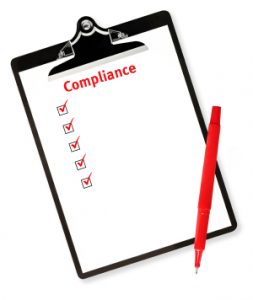 By: Jacqueline Bain
By: Jacqueline Bain
How serious is the federal government that corporate compliance is necessary for healthcare providers?
In late 2015, the Department of Justice (DOJ) hired the agency’s first Compliance Counsel. Then, in early 2017, the DOJ published “common questions” that US Attorneys should ask as part of a criminal investigation when the DOJ evaluates a company’s compliance program. The “common questions” published by the DOJ describe specific factors that prosecutors should consider in conducting an investigation of a corporate entity, determining whether to bring charges, and negotiating plea or other agreements. These factors include “the existence and effectiveness of the corporation’s pre-existing compliance program” and the corporation’s remedial efforts “to implement an effective corporate compliance program or to improve an existing one.”
Healthcare Compliance – Federal False Claims Act
The federal false claims act states that any person or entity that knowingly presents a false or fraudulent claim for payment is liable for civil fines to the government and treble damages. The term “knowingly” includes actions in “reckless disregard for the truth or falsity of the information.” In 2004, for the first time, a Federal court held failure to maintain an effective corporate compliance program is akin to “reckless disregard of their falsity.” This was over a decade ago, and still some healthcare providers fail at this task, whether intentionally or recklessly.
The impetus behind many healthcare compliance laws and regulations is to ensure efficient delivery of healthcare to those that need it, and to prevent overutilization of healthcare for those that don’t need it. Overutilization does more than just drive up the cost of health care, it also clogs our waiting rooms and uses precious physician time ineffectively. Physicians and health care businesses must take this part of their practice as seriously as they do provision of professional care. Failure to recognize the need for corporate compliance practices within your business is an increasingly risky position.
In short, all companies that derive revenue from federal funding should ensure that they have in place effective corporate compliance programs. Failure to have in place an effective program means that any claims for payment submitted to the federal government could be viewed as a “false claim,” resulting in large fines and monetary damages.
